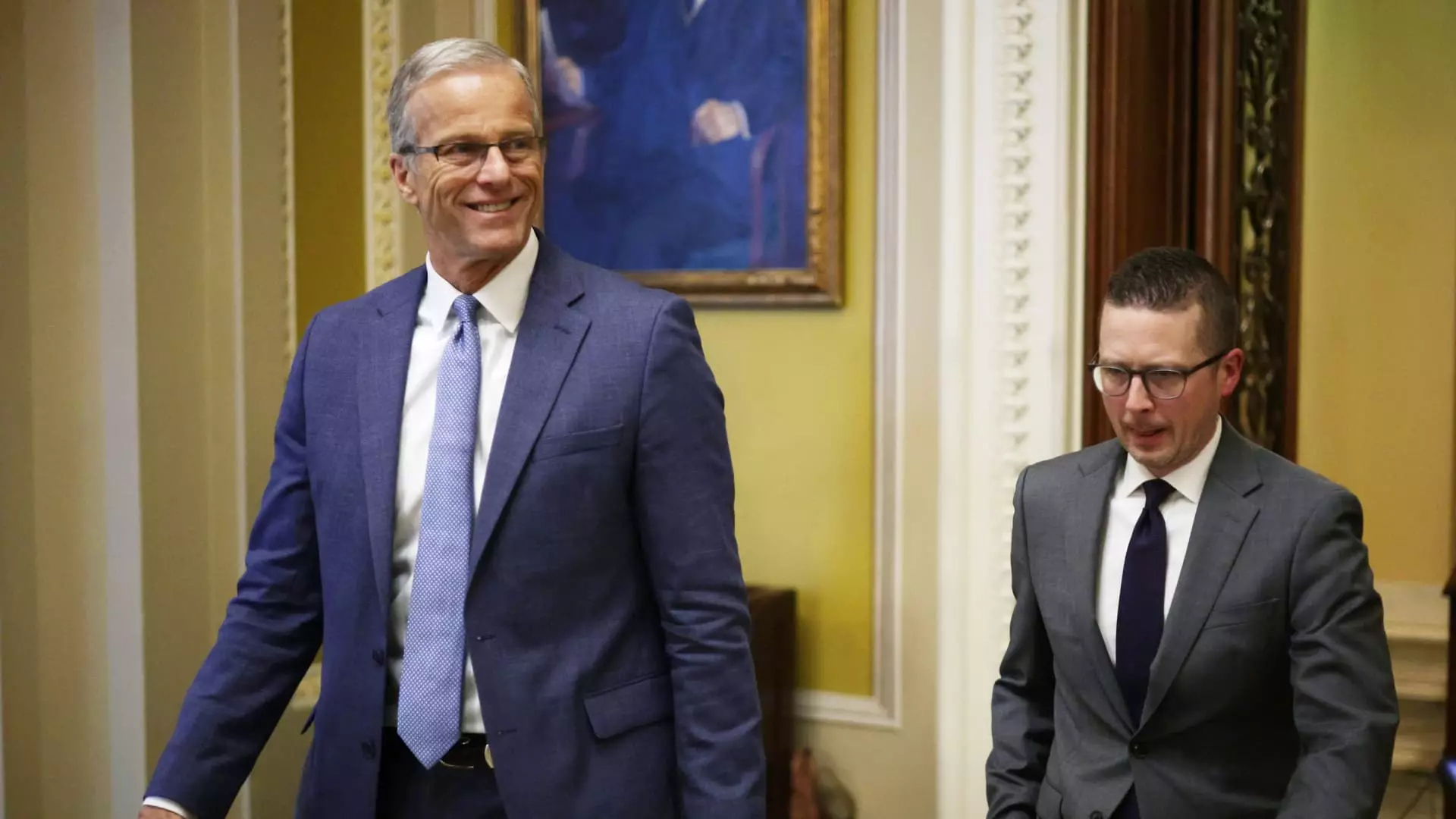The recent passage of President Donald Trump’s expansive domestic policy legislation marks a fleeting legislative victory in the often turbulent landscape of American politics. However, this success is emblematic of a broader, more troubling reality: the bill’s survival is far from assured. With a razor-thin 51-50 vote in the Senate, the bill’s passage was as much a testament to political negotiation and partisan maneuvering as it was an endorsement of its content. The casting vote by Vice President JD Vance underscored how fragile the legislative consensus truly is, highlighting the high stakes for all involved. It’s a victory that teeters on the edge of instability, revealing deep fissures within both the Republican Party and the policymaking process itself.
Party Divisions and Ideological Challenges
The breach within the Republican ranks is particularly telling. Notably, Sens. Thom Tillis, Rand Paul, and Susan Collins—each with their own nuanced priorities—opted to defy their party, voting against the bill. Their dissent highlights an internal conflict that fundamentally questions the unity and strategic coherence of the GOP in this legislative struggle. These defections are worrying signals for the party’s ability to present a cohesive front, especially when the bill is rooted in an aggressive agenda aligned with Trump’s vision. Meanwhile, Democrats implicitly weaponized this division, using procedural tactics during marathon amendments to pin down GOP lawmakers on politically delicate issues, thus exposing vulnerabilities and fracturing the anticipated unity of the legislative opposition.
Legislative Hurdles in the House
The journey ahead for this bill remains treacherous. Passing it through the House introduces a new set of obstacles that could easily derail the entire effort. The House, under Speaker Mike Johnson’s leadership, faces an uphill battle to uphold the Senate’s substantial revisions. Given the slim majority—where just a handful of Republican dissenters could obstruct the bill—the margin for error is minuscule. House conservatives, influenced by skepticism over the bill’s fiscal implications and deep Medicaid cuts, continue to voice their resistance. Their opposition underscores a fundamental ideological divide: while some see the bill as a vital step to enshrine Trump’s agenda, others view it as fiscally irresponsible and damaging to social programs. The prospect of a party-line vote looms large, emphasizing how ideological polarization is hampering legislative compromise.
The Cost of Partisanship and Fiscal Responsibility
One of the most sobering aspects of this legislative saga is the projected impact on the national debt. The nonpartisan Congressional Budget Office warns of a $3 trillion increase in the federal deficit over ten years if this bill becomes law, a staggering figure that raises serious questions about fiscal stewardship in an era of economic uncertainty. For many center-leaning liberals and fiscal moderates, this is a wake-up call: the bill’s promise of advancing policies aligned with Trump’s domestic vision comes at a steep financial price. It raises the uncomfortable debate about whether the effort to cement a particular ideological agenda justifies the long-term economic risks—risks that could burden future generations and deepen existing economic inequalities.
Political Theater and the Art of Negotiation
Behind the scenes, there has been a tense, often contentious struggle to negotiate the final contours of the legislation. GOP leaders have engaged in delicate negotiations with holdouts, all while orchestrating a high-stakes political theater. The near-record-breaking 24-hour amendment session, or “vote-a-rama,” was more an exercise in party posturing than policy refinement, revealing how bipartisan tactics are often driven more by political optics than substantive policy improvements. Democrats seized the opportunity to scrutinize and challenge their GOP counterparts, pushing them onto record votes that could be politically damaging. This legislative spectacle underscores the complex dance of compromise, where strategic gains often come at the expense of meaningful policy consensus.
The Political Cost of Urgency
Perhaps most revealing is the sense of urgency propelled by Trump’s relentless public pressure, calling for a quick passage before the July 4th deadline. This self-imposed timeline reflects a broader trend in American politics—a preference for spectacle and showmanship over deliberate, thoughtful policymaking. The risk is evident: rushing legislation increases the likelihood of oversight, miscalculation, and public disillusionment. It also raises questions about governance in a polarized environment where time constraints and partisan brinkmanship threaten to undermine the stability and integrity of the legislative process. In this context, the bill’s uncertain future exemplifies a system increasingly driven by political theater rather than pragmatic consensus-building, spotlighting the dangers of prioritizing short-term wins over sustainable policy solutions.

